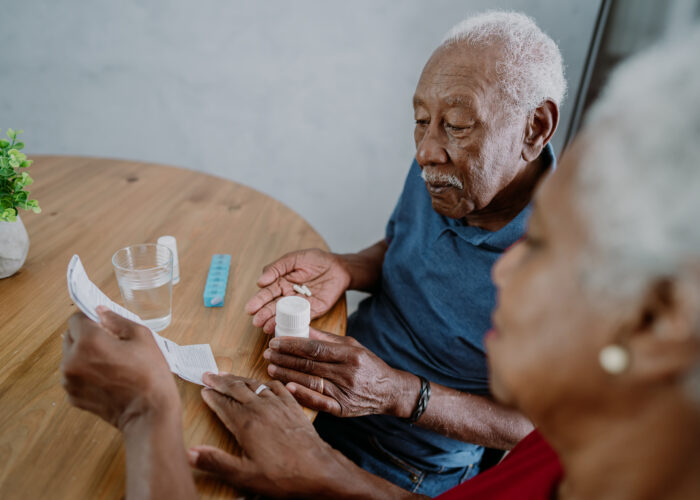Partners: NW London ICB Opioids Working Group, and Patient Safety Collaborative; national Medicines Safety Improvement Programme

Photo credit: Myriam Zilles on Unsplash
Just over 1,000 people in NW London are currently prescribed high-dose long-term opioids to help manage chronic pain, despite limited evidence and risks of dependency and increased mortality. Contributing to the national ambition of reducing harm from opioid medicines by 50% by March ‘24, ICHP has worked closely with system partners and lived experience representatives to develop and deliver a co-designed, scalable model of care for chronic pain in Primary Care, focused on keeping individuals out of hospital.
The approach built on a successful pharmacist-led model of opioid reviews, piloted at one GP practice in Hillingdon, with implementation and evaluation support from ICHP. The scalability of this model – supported by community musculoskeletal (MSK) pain services – was then piloted across five Primary Care Networks (PCNs) in Hammersmith & Fulham. Patient and public involvement and engagement underpinned the design of this pilot, ensuring a patient-centred approach that considered the unique challenges faced by individuals with chronic pain.
A focus group attended by representatives with lived experience of chronic pain reviewed a draft plan for the pilot and contributed key insights to further inform its design, including:
- Challenges they had faced living with chronic pain and interacting with local services
- Their preferences for communication from local health services
- Views on the model of pharmacist-led reviews in general practical, supported by a multi-professional meeting and shared decision tool
Consequently, the focus group developed four recommendations which were embedded into the final design of the pilot:
- Enhanced collaboration and communication with clear and comprehensive information
- Integrated patient-centred approach including an offer of wider support services to create a more comprehensive support system
- Address biopsychosocial aspects of chronic pain, recognising its life-long nature
- Pharmacists are well-placed to support people with chronic pain if encouraged and supported to use shared decision-making tools and look at a person holistically
An evaluation of this pilot considered the impact of this co-designed pharmacist-led model and found that it led to 50% reduction in the amount of opioids prescribed in patients receiving a structured medicines review – demonstrating its potential impact across the whole borough. Based on this evaluation, and continued engagement across this developing ‘opioid innovation network’ in NW London, there is ambition for the programme to sustain and grow in 2024/25.
“Thank you for obviously listening to how chronic pain affects me. I’m really impressed and pleased at all you captured. The findings appear to have covered everything I can recall we discussed. In my opinion, it would help patients tremendously.” Lived Experience Participant



